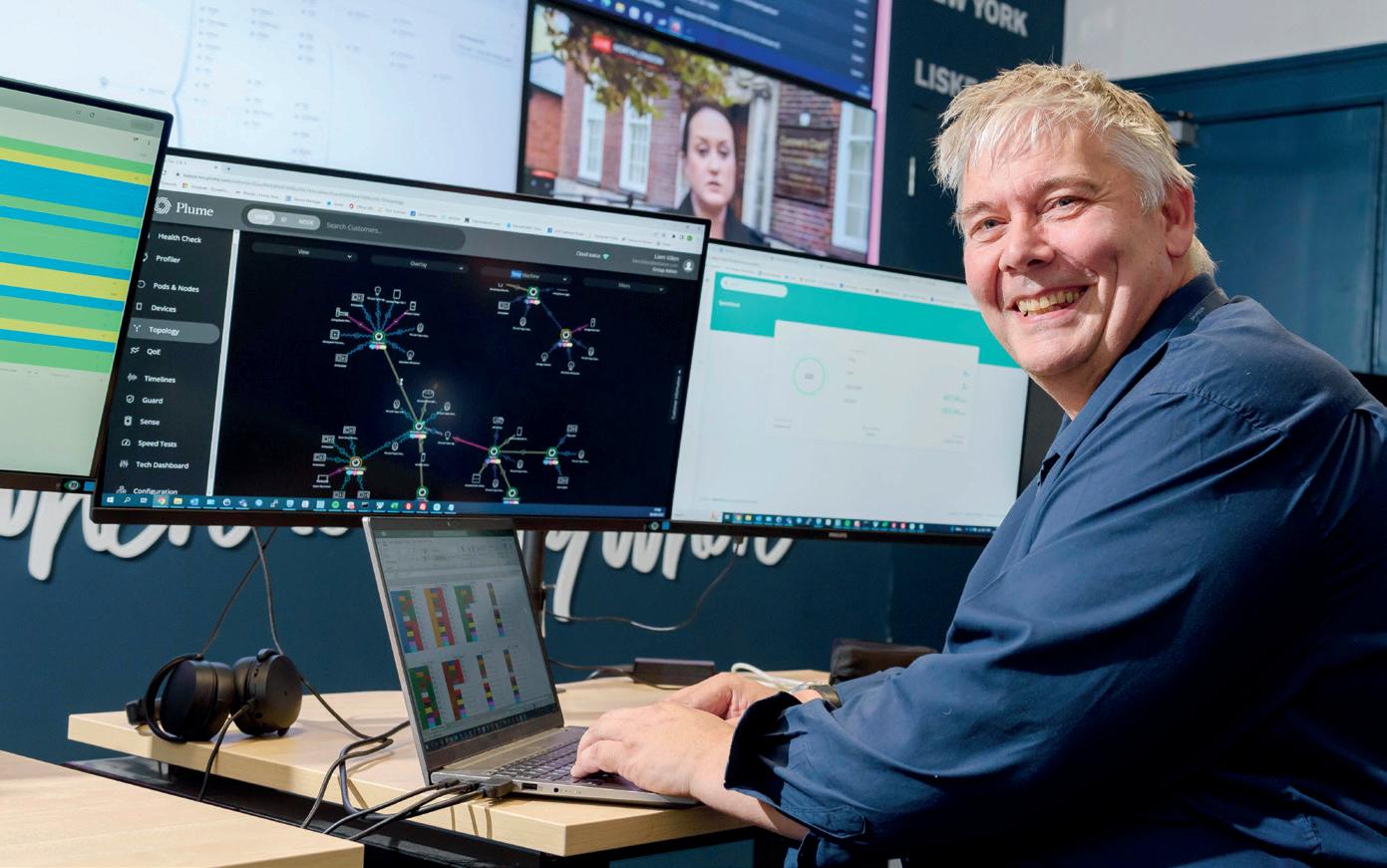
2 minute read
peoplepower A question of
While currently leading the Cornwall and Isles of Scilly Local Skills Improvement Plan (LSIP), it’s been a good time to reflect on the fundamental human influence on business success.
It’s not news to hear that employers need the right people with the right skills. However, with difficult economic conditions, changing attitudes of the workforce and more technically demanding emerging sectors, the realisation that we need to revisit how we train, inspire, attract and retain those valuable people is more pronounced than ever. Especially if we are to maximise Cornwall’s incredible potential.
Louis V. Gerstner, Jr., the man largely credited with turning IBM’s fortunes around as their former CEO said: “Until I came to IBM, I probably would have told you that culture was just one among several important elements in any organisation’s makeup and success — along with vision, strategy, marketing, financials, and the like... I came to see, in my time at IBM, that culture isn’t just one aspect of the game, it is the game. In the end, an organisation is nothing more than the collective capacity of its people to create value.”
Whether you run a large or small business or work in one, you’ll know that it is the people who fit, are competent and have passion for what they do that are the main ingredient for success. The problem is where do you find them? One business said recently, “It’s like trying to find a unicorn, help!”.
There are a good number of people who have been in the workplace for some years and decided not to return or those who have dropped out or felt excluded. That is a tragic waste of talent and experience. So clearly people have been rethinking their lives or have been forced to. Maybe, with help, employers could help tempt them with the chance to reskill while being supported to do something fresh?
In order to retain current workers, businesses could be given greater assistance to offer pathways for improving skills, in-job advancement and wages and to create more opportunities in growing the business at the same time. There is some good practice out there that we should be building on.
The younger generation coming through the school system are often influenced by the Internet and social media but if the thing they have been inspired by isn’t available to them or they just haven’t been shown the other possibilities on their doorstep, how can they train for anything with enthusiasm and reach their potential? Actually, this could be said for anyone. If you can’t see it, you won’t do it right?
In Cornwall there are so many avenues for really great careers, but we need to take time, particularly as part of school and college years, to show employees of the future the way. We want them to train here and stay here surely?
The LSIP simply sets out to obtain an employer led, actionable set of recommendations that businesses and providers can get behind to address future skills needs. That sounds rather like a production line with people as a product, but I see it as more than that. This is about raising aspiration in our county for any age group. It’s about making skills and work interesting, inviting and accessible for all and further strengthening the meaningful links between our training providers and business community.
Businesses in Cornwall are innovative and driven and they have here, an opportunity to clearly describe what they need from all the people that, collectively, will drive our economy and make everyone’s future a whole lot brighter. Please do get involved!
The LSIP final document will be handed to The Department of Education at the end of May. It will have strong influence on the direction of skills provision in Cornwall and I would urge every employer or potential employer to get involved and give us your view. There are focus groups, workshops (both online and face to face) and surveys (online and telephone) too. To find out more about how you get involved go to https://www.fsb.org.uk/local-skillsimprovement-plans.html as we really want to hear from you.









